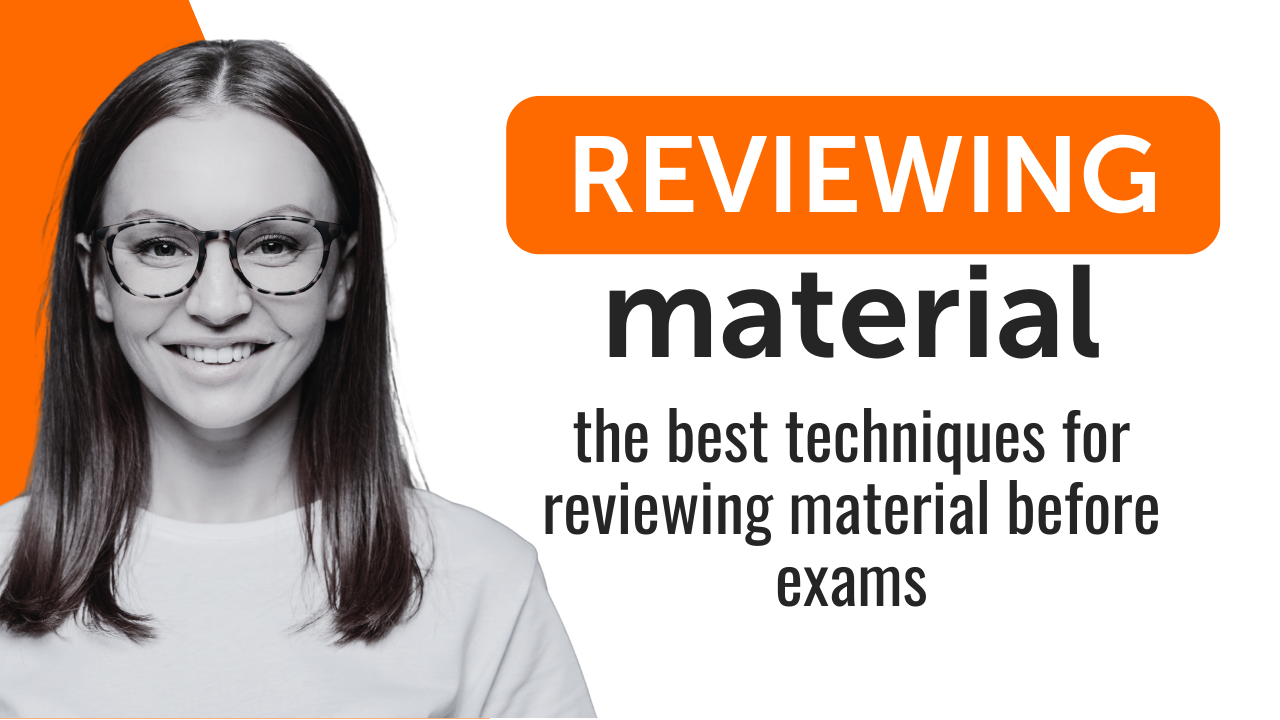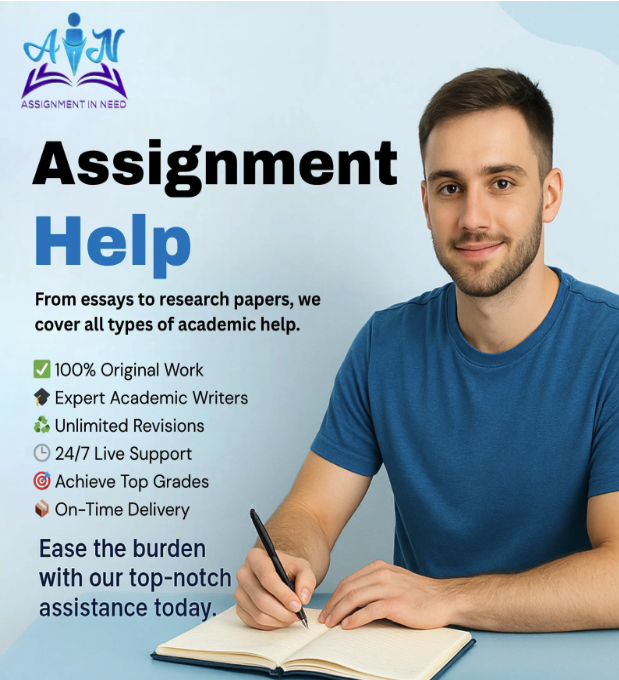
Exams are an inevitable part of every student’s academic journey. Whether it’s GCSEs, A-levels, university finals, or professional certifications, effective revision is the bridge between preparation and success. However, reviewing material before exams can feel overwhelming-especially when there’s a mountain of notes, deadlines looming, and a growing sense of stress.
Fortunately, with the right techniques for reviewing material, students can not only reduce anxiety but also retain more, recall faster, and perform better. This article explores the most effective strategies for exam revision, tailored specifically for students aged 16–30. It’s packed with practical tips, cognitive techniques, and memory-boosting methods-ideal for anyone seeking academic excellence with efficiency.
If you’re also juggling deadlines and wondering “Can someone Do My Assignment while I prepare for exams?”, don’t worry-you’re not alone. Many students turn to assignment help to manage the load during peak revision seasons. But more on that later. For now, let’s dive into the proven methods to make your revision count.

Start Early – Why Timing Matters in Revision
Procrastination is one of the biggest barriers to effective learning. Waiting until the last minute to start revising creates unnecessary pressure and leads to shallow understanding. Starting early gives your brain the chance to absorb, reinforce, and retrieve information over time.
Benefits of Early Revision
- Long-Term Retention: Spaced repetition boosts memory by revisiting information regularly.
- Reduced Stress: More time means better balance and fewer late-night cram sessions.
- Room for Error Correction: Starting early allows time to identify gaps and fix misunderstandings.
Tip: Plan a revision schedule at least 4–6 weeks before exams, and stick to it consistently.
Create a Personalised Revision Plan
A revision timetable is your secret weapon. Without it, you’re likely to waste time or neglect crucial topics. Structuring your study hours brings accountability and focus.
Key Elements of a Successful Study Plan
- Prioritise Weak Topics: Focus more time on subjects or areas where you’re less confident.
- Alternate Subjects: Avoid burnout by mixing subjects across your sessions.
- Include Breaks: Use the Pomodoro Technique-25 minutes of focus followed by a 5-minute break.
- Set Realistic Goals: Don’t overload your day. Quality over quantity is the goal.
Consider using digital planners or online Homework Writing Help tools that offer templates and tracking features.
Use Active Recall – The Science-Backed Technique
Active recall is the most effective learning technique according to cognitive psychology. Instead of re-reading your notes passively, test yourself on the material to boost retention.
How to Practise Active Recall
- Flashcards: Write a question on one side and the answer on the other. Apps like Anki can automate this.
- Quizzing: Create quizzes for yourself or with peers.
- Blurting: Read a topic, hide your notes, and try writing down everything you remember.
- Past Papers: Attempt old exam questions without notes.
This method forces the brain to retrieve information, strengthening memory pathways and enhancing exam performance.
Apply Spaced Repetition – Reinforce Learning Over Time
Spaced repetition involves reviewing information at gradually increasing intervals. Instead of cramming the night before, this method strengthens long-term retention.
How It Works
- Day 1: Learn a topic.
- Day 3: Review it.
- Day 7: Review again.
- Day 14: Final review.
Using this technique ensures that information stays fresh in your memory just in time for exams.
Combine spaced repetition with active recall for maximum impact.
Make Use of Visual Aids – Study Smarter, Not Harder
Visual aids simplify complex topics and help with memory retention through images and structure. They’re particularly effective for visual learners.
Effective Visual Tools
- Mind Maps: Show connections between ideas and subtopics.
- Flowcharts: Ideal for step-by-step processes like scientific methods or historical timelines.
- Infographics: Summarise large chunks of information into bite-sized visuals.
- Colour Coding: Use highlighters to group information by themes or urgency.
Visual techniques also reduce revision fatigue, making studying more engaging.
Teach It to Someone Else – The Feynman Technique
One of the most powerful ways to check your understanding is to explain the concept to someone else-in simple terms.
Why It Works
- Reveals Gaps: If you can’t explain it simply, you haven’t fully grasped it.
- Boosts Confidence: Teaching reinforces what you already know.
- Enhances Memory: Rephrasing information boosts recall.
Even if there’s no one around, explain the topic to yourself out loud or in front of a mirror. Teaching is revision in disguise.
Use Audio & Video Resources for Multi-Sensory Learning
Everyone learns differently. Some students retain better through auditory or visual learning rather than text-based methods.
What to Use
- Podcasts: Great for revising during commutes or gym sessions.
- YouTube Tutorials: Ideal for complex topics like maths problems or economic theories.
- Audio Notes: Record your notes and play them back during downtime.
These tools can break the monotony of reading and provide flexible learning options for busy schedules.
Don’t Underestimate Sleep, Nutrition & Breaks
Effective revision is as much about how you rest as how you study. Poor sleep, junk food, and skipping breaks can sabotage your memory and focus.
Exam Season Self-Care Checklist
- Sleep 7–9 hours nightly for optimal cognitive function.
- Eat brain foods like nuts, blueberries, and eggs.
- Stay hydrated-water fuels focus.
- Take breaks every 60–90 minutes to reset concentration.
Ignoring your health is a shortcut to burnout. A well-rested brain performs far better under pressure.
Mix and Match Study Methods – Keep It Dynamic
Variety keeps the brain stimulated and prevents fatigue. Switching between revision strategies improves cognitive engagement.
Example Study Rotation
- Morning: Flashcards + past paper questions
- Afternoon: Mind maps + group discussion
- Evening: YouTube video + self-quizzing
This rotation keeps your brain guessing and prevents it from getting bored with one method.
Practice with Past Papers – Exam Simulation Matters
Practising past papers helps with exam familiarity, time management, and content application. It’s one of the closest experiences to sitting the real exam.
Tips for Using Past Papers Effectively
- Time Yourself: Replicate exam conditions.
- Mark Your Answers: Use marking schemes to assess your performance.
- Analyse Mistakes: Focus on where and why you went wrong.
- Repeat: Re-attempt the same paper after a week for comparison.
Students looking for Instant Assignment Help often benefit from solving previous papers when under tight deadlines.
Digital Tools That Boost Revision Productivity
There’s no shortage of digital tools that can help streamline revision and maximise productivity.
Must-Have Tools for Students
- Notion or OneNote: For organising notes and revision calendars.
- Forest App: Boosts focus using the Pomodoro Technique.
- Quizlet: Great for collaborative flashcards and quick tests.
- Grammarly: Useful for polishing practice essays or assignments.
Whether using free apps or cheap assignment help platforms for support, students should take advantage of tech to enhance learning.
Exam Revision – Common Pitfalls to Avoid
Knowing what not to do is just as important as knowing what works.
Mistakes That Can Undermine Your Efforts
- Overloading the Day: Leads to exhaustion, not productivity.
- Passive Reading Only: Results in low retention.
- Ignoring Breaks: Reduces focus and creativity.
- Last-Minute Cramming: Triggers stress and limits deep learning.
- Skipping Sleep for Study: Counterproductive in the long run.
Avoid these traps to ensure all your revision work pays off in the exam room.
Final Tips to Supercharge Your Exam Prep
- Revise smarter, not longer.
- Stay consistent, not perfect.
- Ask for clarification early-don’t wait till the last minute.
- Use peer groups for discussions and accountability.
- Seek support, whether it’s tutors, online communities, or Assignment Help when workloads spike.
Conclusion
Reviewing material before exams doesn’t have to be a stressful sprint. With the right techniques-like active recall, spaced repetition, visual aids, past papers, and structured planning-students can optimise their learning and build exam confidence naturally.
For those juggling heavy academic loads and needing support with assignments while they revise, platforms like Assignment in Need (assignnmnetinneed.com) offer reliable, third-party assignment help. It’s about working smarter, not harder-and using every resource available to stay on track.
Remember: good revision isn’t about cramming-it’s about consistency, clarity, and confidence.
Interested In Working Together?
Introducing Delivered Social. We’re The Most-Rated Digital Agency In Surrey & Hampshire – We’ve Got To Be Doing Something Right.
Delivered Social is a digital marketing agency with one mission—to help businesses grow. We’re famous in Guildford and Portsmouth for our social clinics. We believe in free advice. We build lasting relationships because our team prides itself on being helpful, which our clients appreciate.
If you are looking for a new website or an agency to manage your social media presence, we can help.
If you need something slightly different, here's a super handy list of all our services, or you can always email us.























